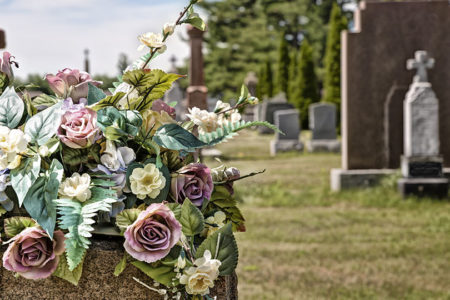Smyrna, the Suffering Church, Revelation 2:8–11
Smyrna was a major commercial center in the first century, giving it fame as the pride of all Asia. Although it was a free city, it gave total allegiance to the Roman Empire as supreme.
The word Smyrna means myrrh or bitterness and presents a picture of Jesus’ suffering, which culminated in His death. The Lord revealed Himself in two ways to the church at Smyrna—first, as divine Lord, for He said, I am “the first and the last” (the eternal Son of God who existed before creation and will be alive long after its culmination), and second, as the crucified and resurrected Lord, for He said that He “was dead, and is alive” (v. 8). Although He suffered and died for the sin of mankind, Jesus is alive today. He has robbed death of its sting, stripped the grave of its power, and stands victorious as the eternal Christ. Knowing what the Lord suffered was a great comfort to the church at Smyrna, which was undergoing horrible persecution at the time John penned The Revelation.
The Commendation
There was no condemnation (as with the other churches), only commendation from the Lord for the suffering church at Smyrna. He knew their works and the severe persecution (v. 9) they were experiencing for their commitment to Him and for standing true to the gospel. During the first three centuries of the church (64–312 A.D.), from Nero to Constantine, ten major persecutions were poured out by Roman Emperors on believers. Among other things, they were fed to lions, crucified, killed by wild dogs, tarred and set on fire, burned at the stake, and boiled in oil. The famous Polycarp, Bishop of Smyrna, refused to recant his faith, stating, “Eighty-six years I have served Him and He has done me no wrong. How can I blaspheme my King?” He was burned alive at the stake around 155 A.D. in the arena at Rome.
Christ knew of the “poverty” (v. 9) this church faced—in their case abject poverty, possessing absolutely nothing. Their poverty most likely resulted from their uncompromising commitment to Christ. Employment was probably withheld from them, shop owners were boycotted, and their homes were robbed and vandalized. The Lord could easily relate to their poverty. Although He was rich, Christ lived as a poor man during His earthly existence. He owned no property and possessed only the clothes on His back. Naturally, His lifestyle and words greatly encouraged these believers.
But although they were poor, the believers of Smyrna were actually “rich” (v. 9)—rich in the Savior’s love, scriptural encouragement, spiritual blessings, and the fruit of the Spirit. They were rich because they had laid up treasures in heaven and not on earth. Paul’s testimony provides a good summary of what the Christians in Smyrna were experiencing: “as poor, yet making many rich; as having nothing, and yet possessing all things” (2 Cor. 6:10).
John revealed that “the synagogue of Satan” (v. 9) was one of the major persecutors of this church. The Jewish community in Smyrna was being used by Satan for “blasphemy” (v. 9) against the church and the work of Christ within the city by breathing out threats and slaughter against the church and turning Christians over to the Roman authorities who, in turn, committed them to prison and ultimate death. John stated that “the devil” would be responsible for casting some of the Smyrna believers into prison (v. 10). They were to be “tried, and … have tribulation ten days” (v. 10). These ten days of tribulation have been interpreted in several ways but most likely refer to a brief period of imprisonment of some of the believers in this church because of their faith.
The Lord counseled the church not to “fear” the things that they would “suffer” (v. 10). God, in His foreknowledge, knew their situation and was in complete control of the circumstances. He has set certain limits on what Satan can pour out on believers, as with Job. Paul encouraged Christians, “There hath no temptation taken you but such as is common to man; but God is faithful, who will not permit you to be tempted above that ye are able, but will, with the temptation, also make the way to escape, that ye may be able to bear it” (1 Cor. 10:13). The Lord promised that His “grace is sufficient” (2 Cor. 12:9) to carry believers through, if they will only lay hold of it.
The Crown
Christ promised a reward to those in Smyrna who remained faithful: “I will give thee a crown of life” (v. 10). The crown referred to was a wreath or garland like those given in the Grecian games for winning a race. Although there are many interpretations of the meaning of this “crown of life,” it seems to refer to a reward that is more than just the possession of eternal life, because it is given to those who are “faithful unto death” (v. 10).
John called on the church at Smyrna to “hear what the Spirit saith unto the churches” (v. 11). All those who “overcometh [i.e., all saved people] shall not be hurt of the second death” (v. 11). One thing is sure—those who trust in Christ for their salvation are assured that they will not have to stand before the Great White Throne Judgment and be condemned to the Lake of Fire, which is the second death (Rev. 20:11–15).
The Christians in Smyrna underwent crushing persecution, but throughout the experience they emitted the fragrance of Christ. Poor though the church was in material wealth, it was rich in the Savior, the Scriptures, and spiritual blessings. Because of their faithful commitment to Christ, this church lived a victorious life in the Lord. Christians today who are undergoing trials for their faith can glean encouragement and strength from the testimony of the church at Smyrna.









Thank you
Encouraging message..